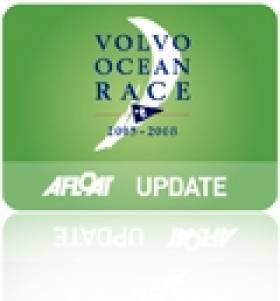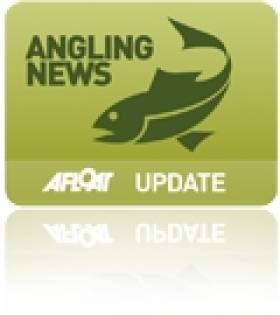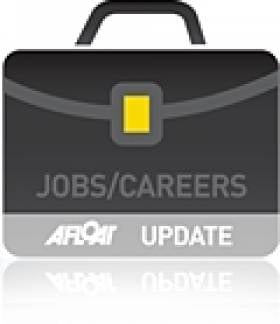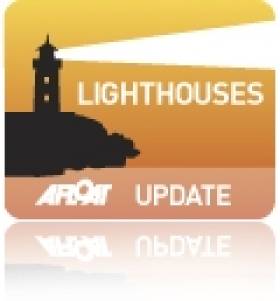Displaying items by tag: FÁS
#vor – Tradtional boating got a boost at the Volvo Ocean Race in Galway last night at a special ceremony in Galway Harbour when the country's newest community built Galway hooker was named in a ceremony attended by Social Protection Minister, Joan Burton TD. The boat has been named 'Croí an Cladaig'.
The 32–foot boat is the first of its class to be built in Galway since 1922. In keeping with the Claddagh's centuries old traditions it will be launched on Sunday afternoon, after it is blessed in a ceremony conducted by Dominican Fathers.
The new hooker took 18 months to design and build as part of a training scheme organised by the Claddagh based boatmen's association, "Badoiri an Cladaig", FAS, Galway City & County Enterprise Board and several other local community groups.
Chairperson of "Badoiri an Cladaig", Michael Coyne, said the building of the new hooker has created huge excitement in the Claddagh and has given new impetus to efforts to revive the ancient craft of traditional boat building in Galway.
National Disabled Angling Centre to Stay Open Pending Review
#ANGLING - The National Disabled Angling Facility at Aughrim in Co Wicklow is to remain open following an 11th-hour agreement last month, The Irish Times reports.
A deal reached between Fás, Siptu and the centre's staff will retain all 23 jobs with a 25% pay cut and see the premises stay open until a "review" is published in March.
Opened by then President Mary Robinson in 1996, the facility is operated as a Community Employment Fás scheme and has been an invaluable amenity for disabled anglers nationwide.
FAS - Job Opportunity - FAS Project Co-Ordinator in Athlone, Co. Westmeath
Stepping Out Programme
Stepping Out is a Vocational Training Programme funded by the Probation and FAS Services and run by National Learning Network in Golden Island Athlone. Stepping Out is designed to help people who have been involved in crime (which may have included drug or alcohol addiction).The target groups for Stepping Out are offenders who have been before the courts and placed under supervision of the Probation Services, as well as those at risk of committing offences.
Stepping Out has developed a unique system of service provision that enables people to achieve their potential in a manner that takes account of personal, social, economic and environmental issues.
Applications are invited for the following position:
Fas Project Co-Ordinator – 12 Month Fixed Term Contract
Local Training Initiative Programme Funded by Fas
Location: Athlone, Co, Westmeath
Within the FAS LTI Programme, the Training Co-Ordinator is responsible for assisting in the development of the skills, knowledge, confidence and resources that are necessary to access employment, higher training and/or options in the wider community. Learning is fostered through a combination of projects and activities in response to the identified needs of each individual and practical skills are sampled in a range of activities.
The Fas Project Co-ordinator will be responsible for delivering a skills training module to Fas learners on the programme mainly in area of strip plank wooden boat building.
The Fas Project Co-ordinator will have served a recognised apprenticeship in boat building and have an appropriate qualification for the industry to deliver FETAC awards in Woodcraft and /or Boat Building.
As training takes place in a real work situation the successful candidate will also be responsible for Costings, Production planning and Quality control.
The FAS Project Co-ordinator will have overall responsibility for this skills training project, leading to Fetac Certification for persons who avail of the training programme. Previous experience in a training or supervisory position would be an advantage. A Training qualification is desirable.
This position will be offered initially on a twelve month contract basis and the successful candidate will receive training in the methods required for training people with behaviour and development needs
Please send all applications to
FAS Employment Services Office
Unit 8 Inish Carrig Business Centre,
Golden Island,
Athlone,
Co Westmeath
Quote Job Reference: JOB650397
Closing date for receipt of applications is 12th December 2011
The Rehab Group is an equal opportunities employer.
Mutton Island Lighthouse To Shine Once More
The refurbished Mutton Island lighthouse in Galway Bay will open to tour groups on a regular basis next year, the Galway City Tribune reports.
Once one of the final landmarks of the city seen by emigrants leaving on the 'coffin ships' bound for the United States in the Great Famine, its light last shone in 1977.
The protected lighthouse and its island were purchased by Galway City Council for a total of £2, and since then the 18th-century building fell into disrepair - although the island thrived as a sanctuary for artic terns and Claddagh swans.
But in 2005 a project was intitiated by Galway City Council and the Galway Civic Trust, involving FÁS trainees to restore the lighthouse and its grounds to their former glory, and the fruits of this labour are set to be unveiled next spring.
Recent free tours of the building for Hertiage Week were hugely popular, providing high hopes for the lighthouse and its gardens to become a valuable new amenity for the City of the Tribes.
The Galway City Tribune has more on the story HERE.

































































